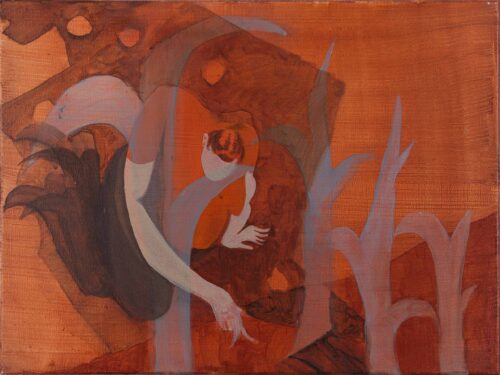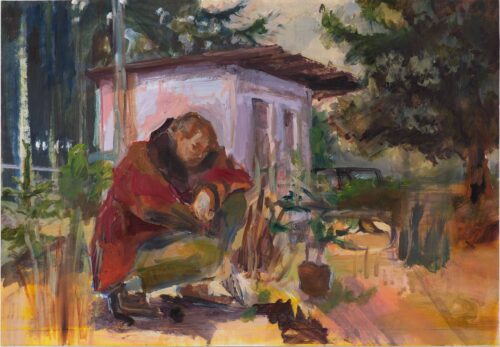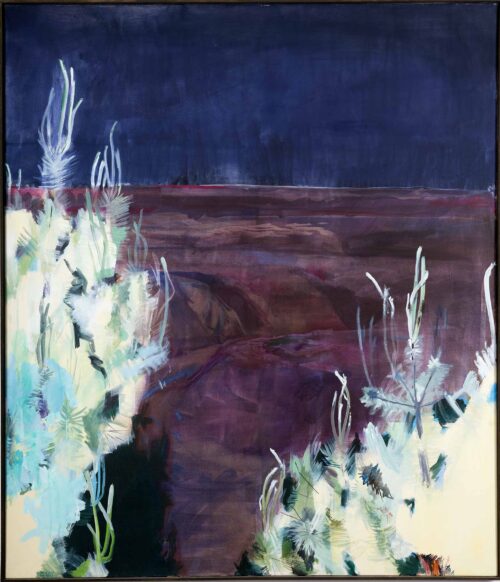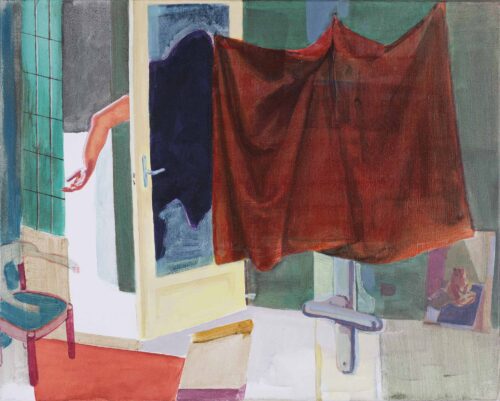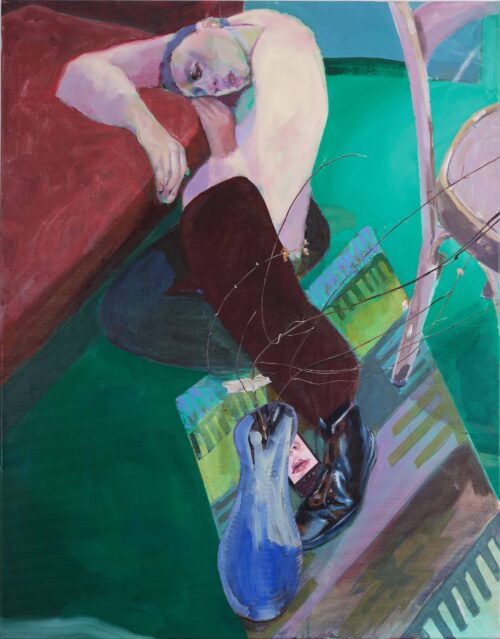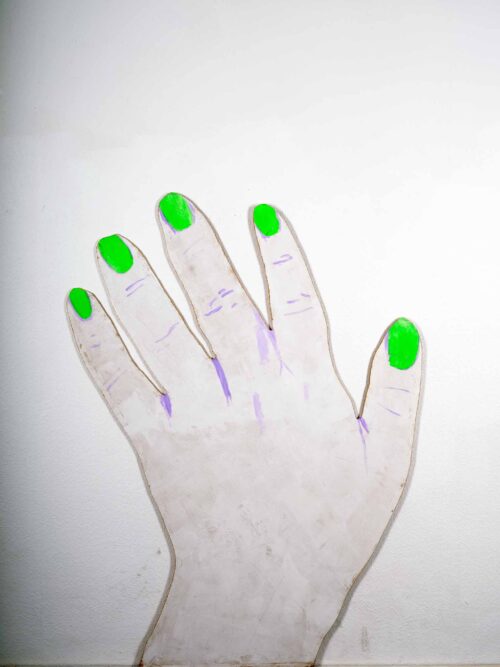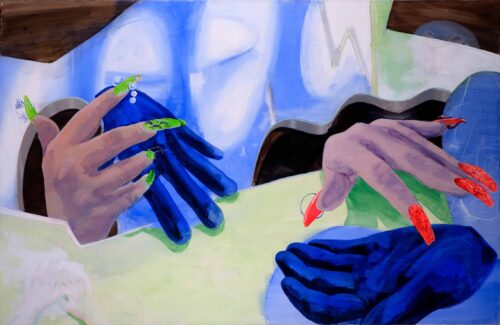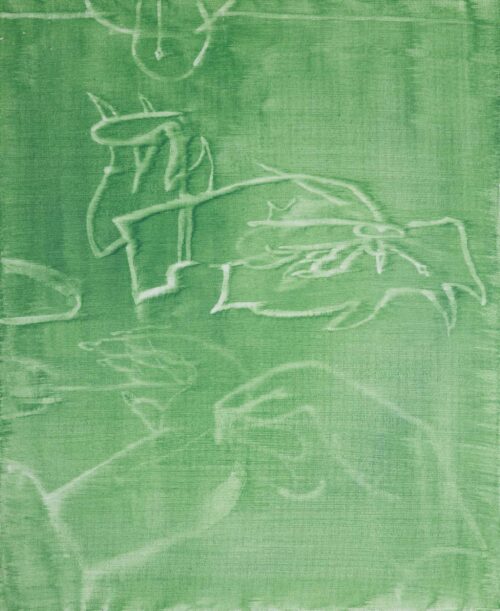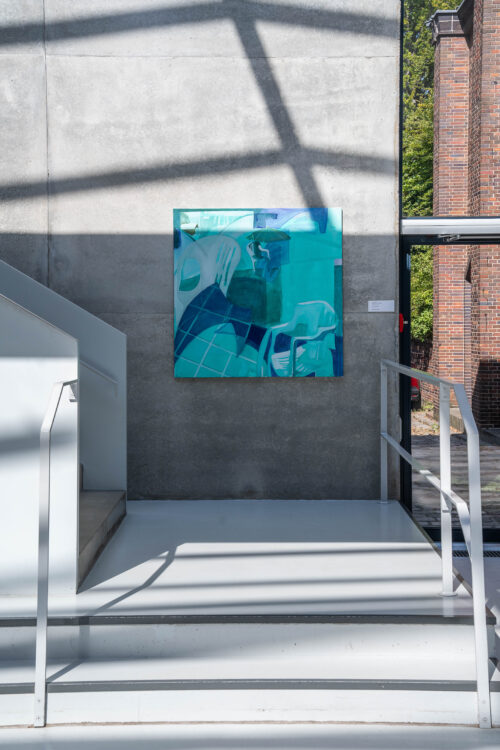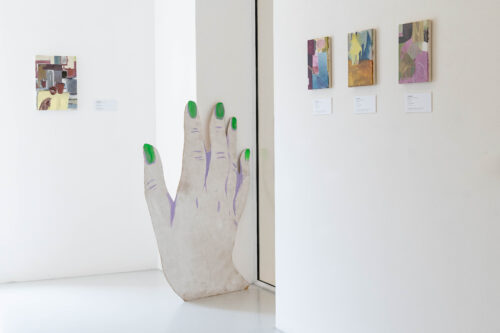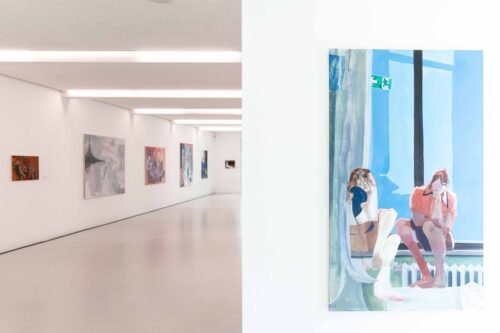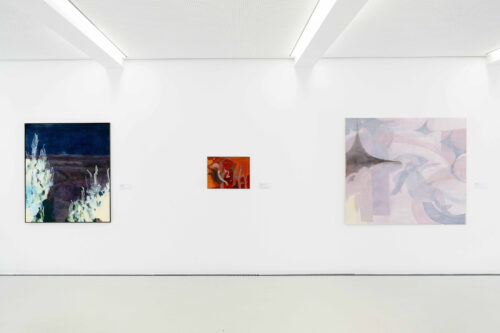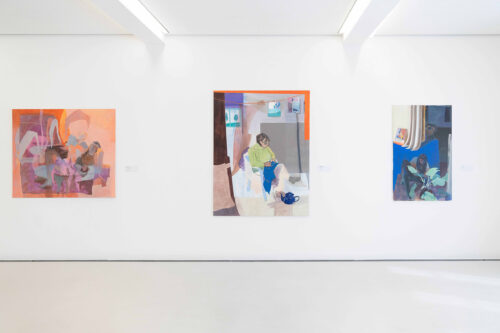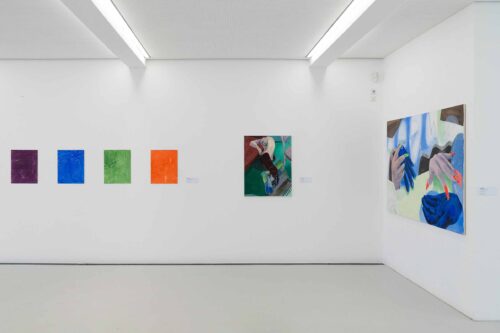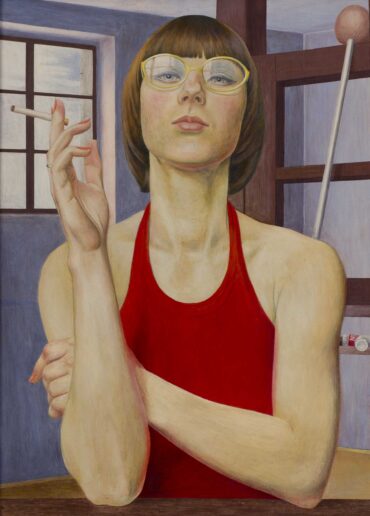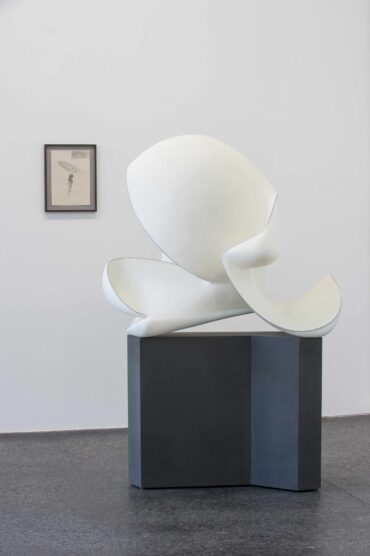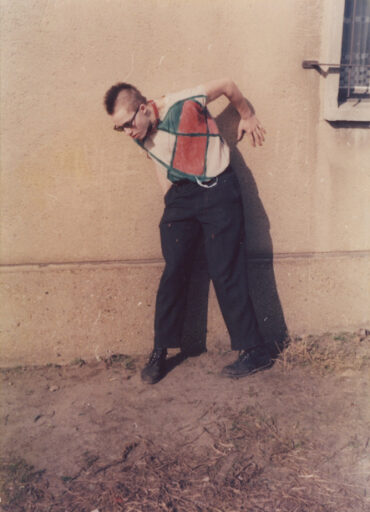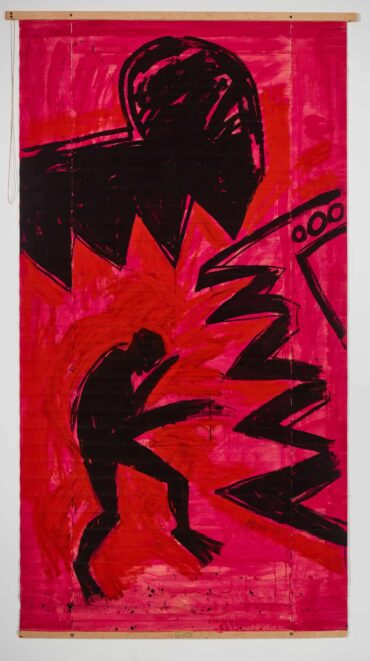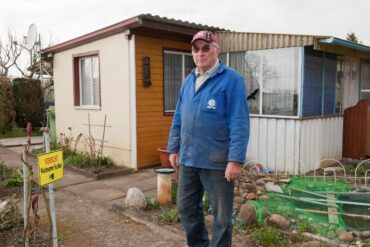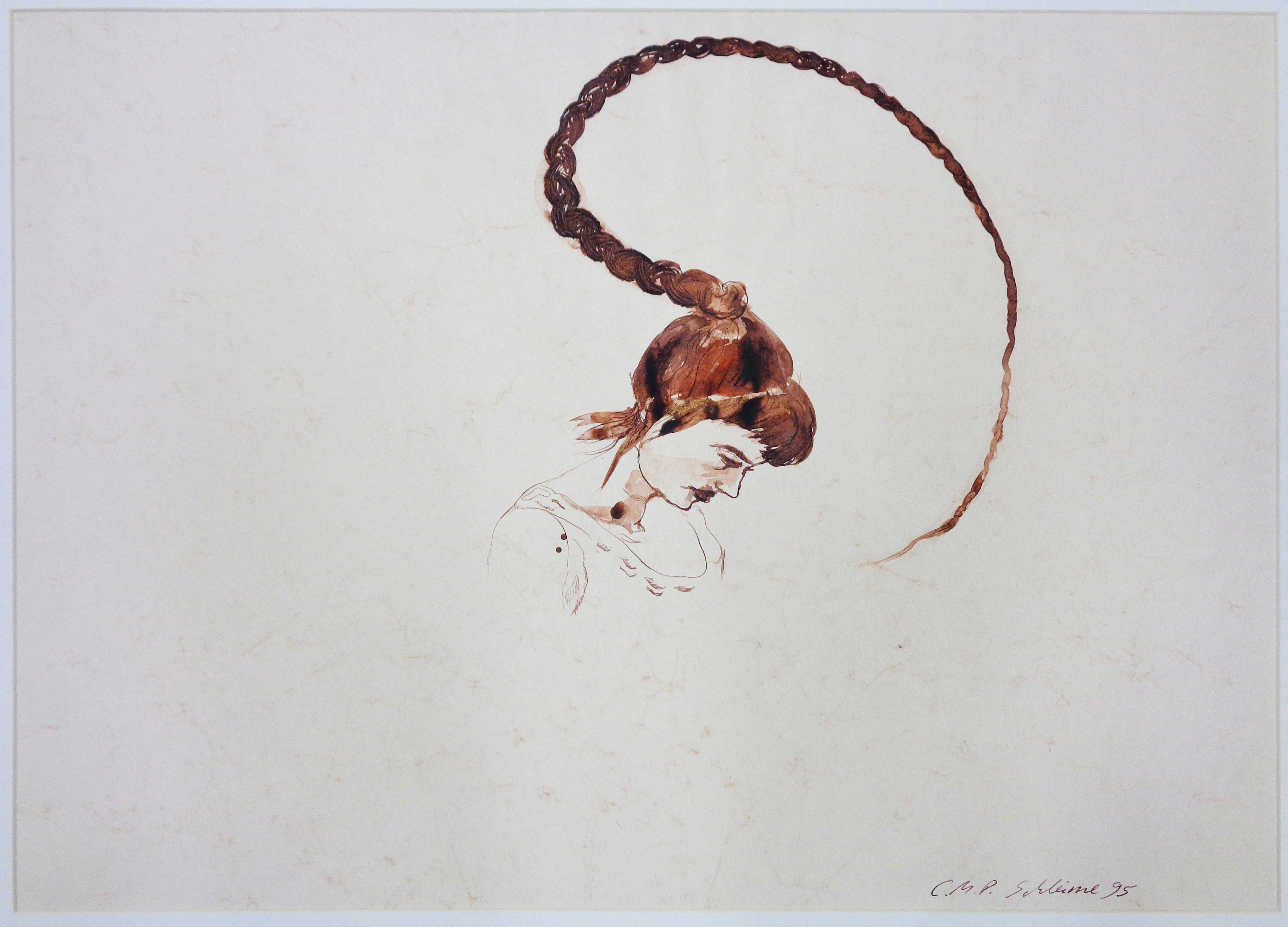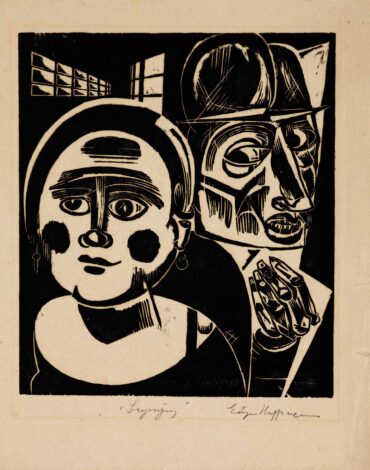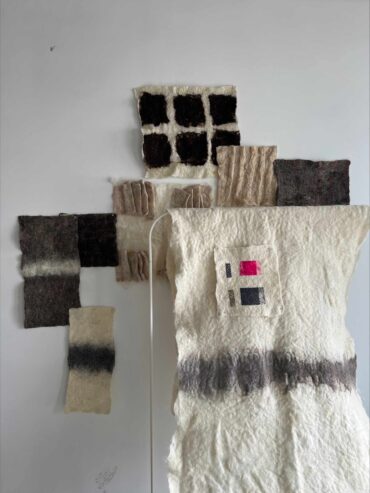
Hella Stoletzki Njewěste dotyknjenje | Unbestimmt die Berührung
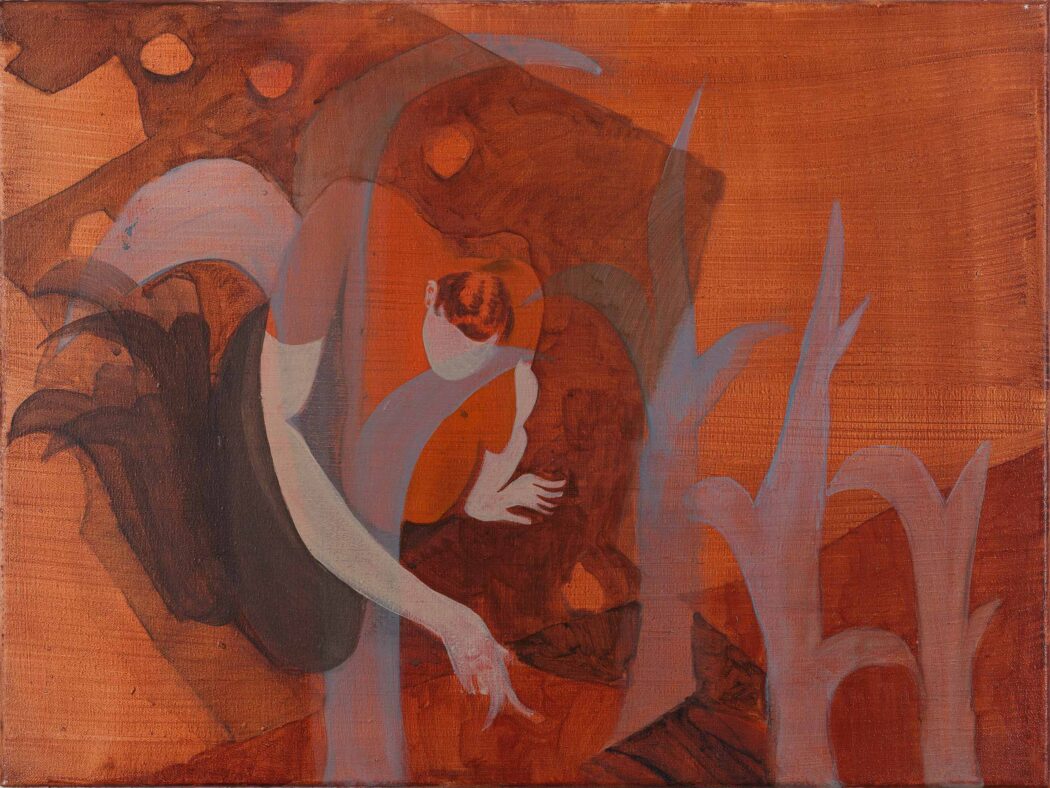
Hella Stoletzki, Kartoffelernte, 2024, Acryl auf Leinwand © Hella Stoletzki, Foto: Ludwig Rauch
Vielfach sind die Sujets der Künstlerin eng an Landschaften, Menschen, Identitäten sowie Lebensbedingungen und -weisen in der Lausitz geknüpft: Ansichten von Tagebaulandschaften, die durch die industrielle Energiegewinnung gekennzeichnet sind, finden sich auf ihren Bildern ebenso wie Bildprotagonist*innen, die teilweise bekleidet mit sorbischen Trachten oder Trachtenversatzstücken wie Hauben in Kombination mit jugendlicher Alltagskleidung sind.
Insbesondere wenn der Darstellungsfokus auf traditionellem Brauchtum liegt, wird die bewusste, gleichwohl traditionsaffirmierende Veränderung deutlich: während in historischen Bildern kulturell homogene Lebenswelten geradezu zementiert werden, skizziert Stoletzki hybride, beizeiten fluide Charakteristika kollektiver und individueller Identitätserzählungen.
Kooperationspartner
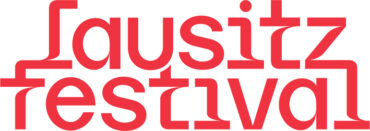
Hinweis: Am 25.8. wird um 16:00 Uhr die Komplementärausstellung von Hella Stoletzki we waŝych zagrodach – in euren Gärten (Laufzeit 28.8. – 16.11.24) in der Galerie ma/rie/mix 23 in Cottbus eröffnet.
…
Hella Stoletzki’s paintings and her graphic work are essentially characterized by the representation and critical questioning of traditional ideas of Sorbian/Wendish identities.
The artist’s subjects are often closely linked to landscapes, people, identities as well as living conditions and ways of life in Lusatia: views of open-cast mining landscapes, which are characterized by industrial energy production, can be found in her pictures as well as picture protagonists who are partly clothed Sorbian traditional costumes or traditional costume pieces such as hoods in combination with young people’s everyday clothing.
Particularly when the focus of the representation is on traditional customs, the conscious, yet tradition-affirming change becomes clear: while culturally homogeneous lifeworlds are virtually cemented in historical images, Stoletzki outlines hybrid, sometimes fluid characteristics of collective and individual identity narratives.
Cooperation partner

